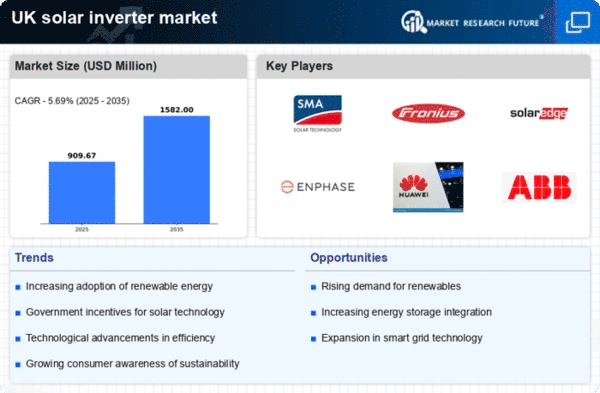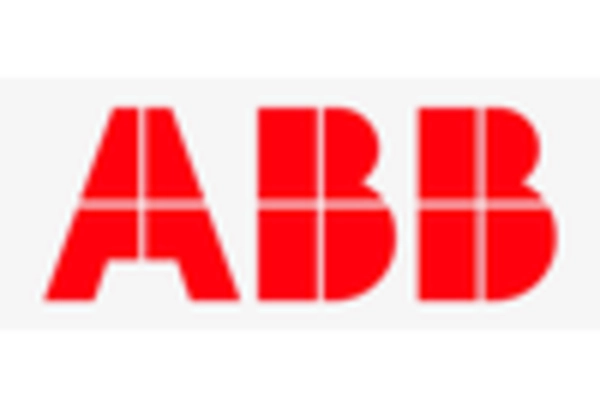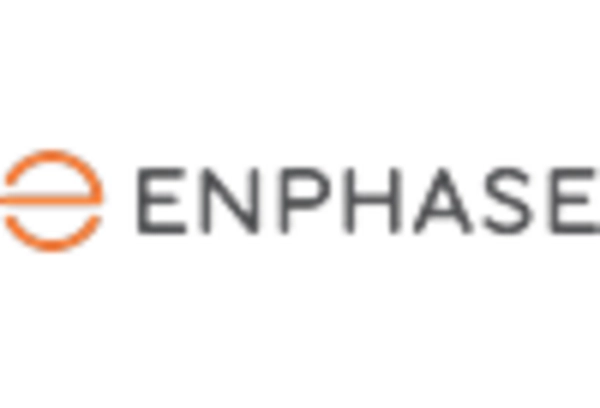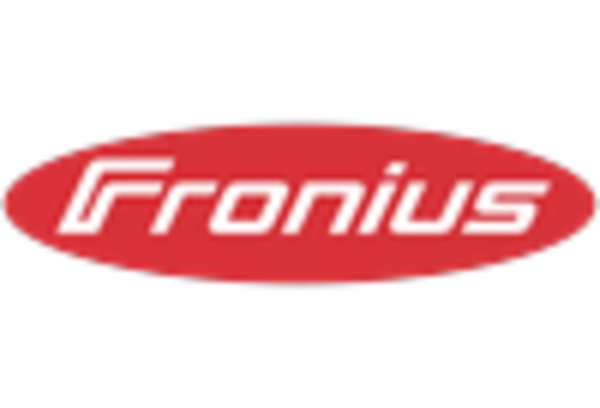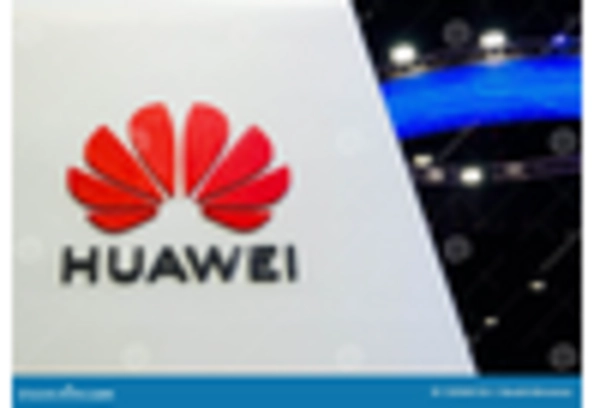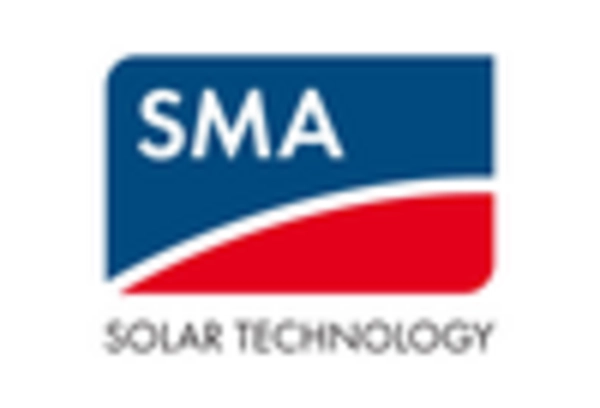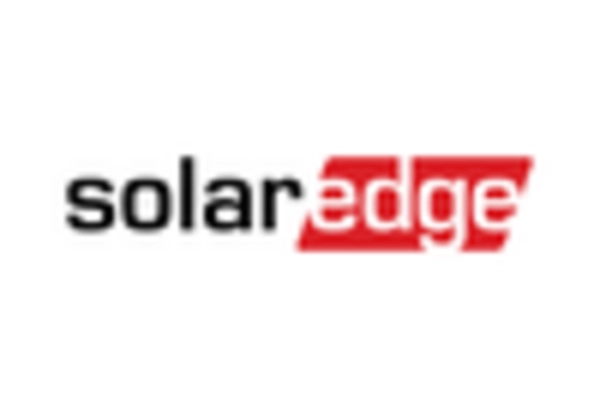Rising Energy Costs
The escalating costs of energy in the UK are driving the demand for solar inverters. As traditional energy prices continue to rise, consumers and businesses are increasingly seeking alternative energy solutions. The solar inverter market is positioned to benefit from this trend, as solar energy offers a cost-effective alternative. In 2025, energy prices are projected to increase by approximately 15%, prompting more households to consider solar installations. This shift not only reduces reliance on grid electricity but also enhances energy independence. Consequently, the solar inverter market is likely to experience significant growth as more consumers invest in solar technology to mitigate rising energy expenses.
Growing Environmental Concerns
Increasing awareness of environmental issues is propelling the solar inverter market forward. As climate change becomes a pressing concern, more individuals and businesses are motivated to adopt sustainable energy solutions. The solar inverter market stands to gain from this shift, as solar energy is viewed as a clean and renewable alternative. In 2025, surveys indicate that over 60% of UK consumers prioritize sustainability in their purchasing decisions. This growing environmental consciousness is likely to drive the adoption of solar technology, thereby boosting the demand for solar inverters as part of broader efforts to reduce carbon footprints.
Expansion of Solar Infrastructure
The expansion of solar infrastructure across the UK is a critical driver for the solar inverter market. As more solar farms and residential installations are developed, the need for efficient and reliable solar inverters increases. In 2025, the UK is expected to see a 25% rise in solar capacity, necessitating a corresponding increase in inverter installations. This growth in infrastructure not only supports the transition to renewable energy but also creates opportunities for manufacturers and suppliers within the solar inverter market. The ongoing investment in solar infrastructure is likely to sustain market growth and innovation in the coming years.
Regulatory Support for Renewable Energy
The UK government has implemented various regulations and policies to promote renewable energy, which significantly impacts the solar inverter market. Initiatives such as the Feed-in Tariff and the Smart Export Guarantee encourage the adoption of solar technology. These policies provide financial incentives for households and businesses to invest in solar systems, thereby increasing the demand for solar inverters. In 2025, it is estimated that around 30% of new energy installations will be solar-based, driven by supportive regulations. This regulatory environment fosters a conducive atmosphere for the solar inverter market, as it aligns with the UK's commitment to reducing carbon emissions and achieving net-zero targets.
Technological Innovations in Solar Inverters
Technological advancements in solar inverters are transforming the solar inverter market. Innovations such as microinverters and power optimizers enhance the efficiency and performance of solar energy systems. These technologies allow for better energy management and increased energy yield, making solar installations more attractive to consumers. In 2025, it is anticipated that the market for advanced solar inverters will grow by 20%, driven by the demand for higher efficiency and reliability. As consumers become more discerning about energy solutions, the solar inverter market is likely to benefit from these technological improvements, which promise to deliver superior performance and longevity.


